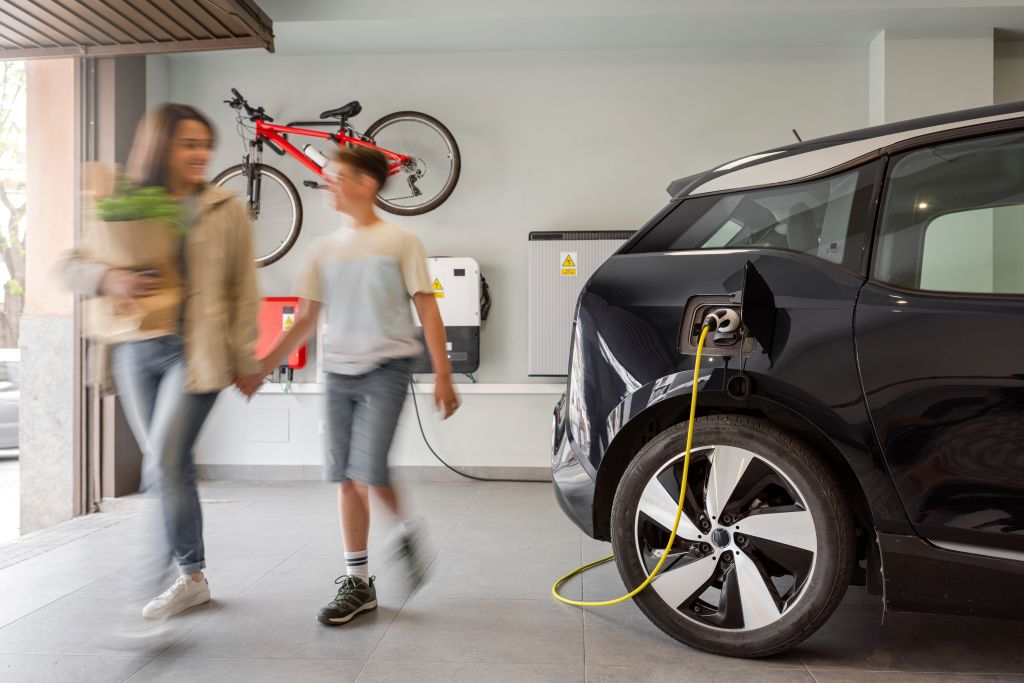Published July 10, 2023 • 4 Min Read
When budgeting for your next vehicle (or your first), one important choice is buying a new or used auto. Both new and used cars have advantages and disadvantages, so it’s important to know what you’re getting into.
Here are the factors to consider when deciding if a new or used auto is right for you.
Safety and dependability
Safety regulations and laws have become stricter in recent years, meaning the latest models will require extra safety features such as tire pressure monitoring, stability control and rear-view cameras. It’s a myth that used vehicles are naturally less safe to drive than new ones. If the seller has the vehicle’s certifications in order, they may be as safe as the newest models.
Dependability is a different consideration. A new car may last longer and require less maintenance than one with more tread on its tires.
If you’re buying used, mileage is an important consideration. Most auto experts consider a vehicle over 160,000 km as “high mileage,” which means you might spend more on repairs and checkups to keep it in prime driving condition.
Upfront costs
Buying used is one of the best ways to save money when looking for your next vehicle. As of May 2023, the average listing price for a used vehicle in Canada is around $39,000, according to the Financial Post. For a new vehicle, that number climbs to around $61,000.
Of course, these values will vary depending on the make and model of the vehicle you’re interested in. It’s important to get a good sense of what you can afford before going to a dealer — RBC’s My Auto Affordability Tool is a great way to set your budget and prevent any unwanted surprises.
Warranties
When buying new, your vehicle usually comes with a manufacturer’s warranty that covers repairs for broken or defective parts. However, these warranties don’t last forever — the average manufacturer’s warranty applies for a period of three years or around 60,000 km, whichever comes first. That means coverage will likely be expired on a used vehicle.
Used car warranties, called “extended warranties,” are available for those looking for that peace of mind. Extended warranties typically cost around $500 to $2000, depending on the coverage’s length and extent. Basic warranties will cover your vehicle’s major components, such as the engine, transmission and brakes. More premium warranties can also cover repairing broken amenities such as the radio, GPS and climate control system.
It’s important to note that warranties only cover damage from normal wear and tear on your vehicle. Your warranty won’t cover damage caused by an accident.
Depreciation
A downside to buying new is the high depreciation rate. As soon as you buy a new car, it becomes a used car, and after one year, the depreciation rate is roughly 20 per cent, climbing 15-25 per cent per year for the next four years, according to Kelley Blue Book. This means that five years after buying a new vehicle, its value may have dropped by almost 60 per cent.
On the other hand, used cars can depreciate at a slower rate. For example, the value difference between the eighth and tenth year of a used vehicle’s lifespan is much less than the difference between its first and third. This means that if you’re looking to resell your vehicle down the road, you may make more of your money back by purchasing a used one.
Interest rates
When it comes to new versus used autos, dealerships tend to make less money on used cars. That’s because used autos usually sell for lower prices than new ones, and the dealers have to pay the costs to buy, refurbish and store them. This means a dealer often has a higher interest rate on used autos to help make more money back.
For any auto loan, it’s also important to compare interest rates, which can help save you money. Not only do different dealers offer different rates, but the dealers’ interest rates may be higher than what you might get directly from a financial institution. Also, the terms and fees on loans will vary based on location, credit history, debt level and other factors. The average interest rate on an auto loan in Canada is around 7.7 per cent for a new vehicle, according to Statistics Canada.
Read next: Important Questions to Ask Before Financing a Car
Thinking of buying a car?
Check out RBC’s Car Loan Payment Calculator for options to finance your new vehicle.
This article is intended as general information only and is not to be relied upon as constituting legal, financial or other professional advice. A professional advisor should be consulted regarding your specific situation. Information presented is believed to be factual and up-to-date but we do not guarantee its accuracy and it should not be regarded as a complete analysis of the subjects discussed. All expressions of opinion reflect the judgment of the authors as of the date of publication and are subject to change. No endorsement of any third parties or their advice, opinions, information, products or services is expressly given or implied by Royal Bank of Canada or any of its affiliates.
Share This Article






